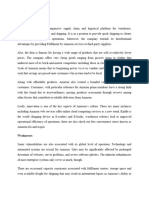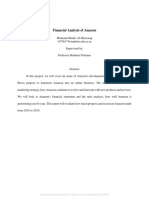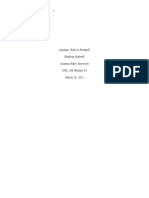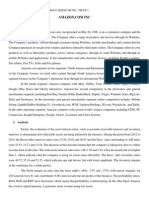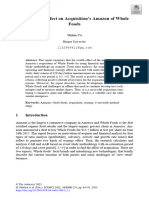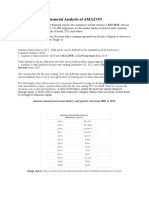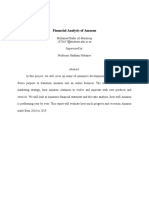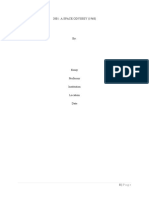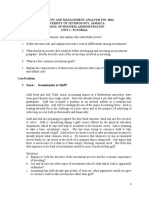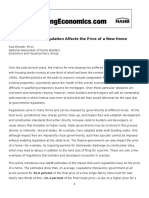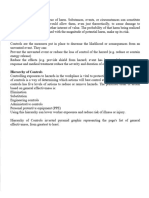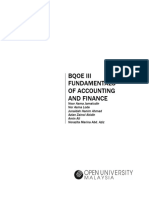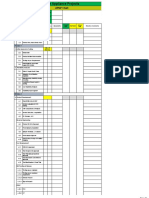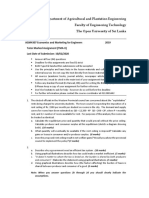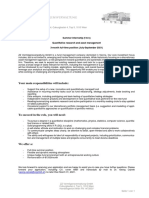0% found this document useful (0 votes)
23 views4 pagesMOF Chapter 5
The document provides a financial analysis of Amazon, focusing on liquidity, profitability, and turnover ratios for the years 2019 and 2020. It highlights that Amazon has maintained strong liquidity and improved profitability ratios, despite a decline in turnover due to the COVID-19 pandemic. Overall, the analysis concludes that Amazon has enhanced its financial performance and secured a dominant position in the e-commerce industry.
Uploaded by
Baishali MannaCopyright
© © All Rights Reserved
We take content rights seriously. If you suspect this is your content, claim it here.
Available Formats
Download as DOCX, PDF, TXT or read online on Scribd
0% found this document useful (0 votes)
23 views4 pagesMOF Chapter 5
The document provides a financial analysis of Amazon, focusing on liquidity, profitability, and turnover ratios for the years 2019 and 2020. It highlights that Amazon has maintained strong liquidity and improved profitability ratios, despite a decline in turnover due to the COVID-19 pandemic. Overall, the analysis concludes that Amazon has enhanced its financial performance and secured a dominant position in the e-commerce industry.
Uploaded by
Baishali MannaCopyright
© © All Rights Reserved
We take content rights seriously. If you suspect this is your content, claim it here.
Available Formats
Download as DOCX, PDF, TXT or read online on Scribd
/ 4











